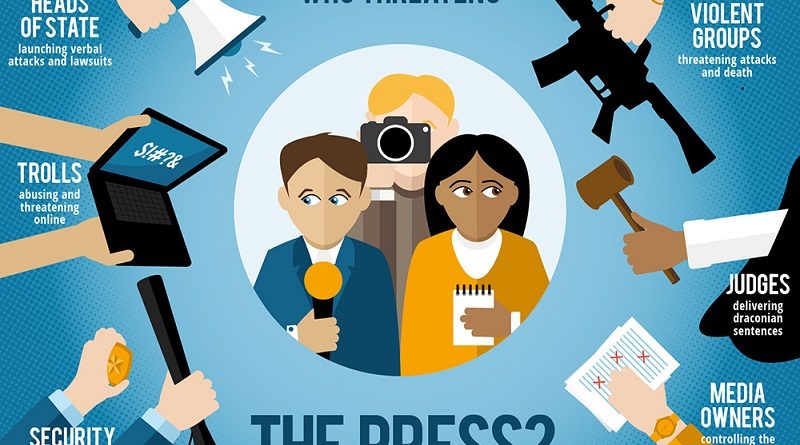Southeast Asian Governments Squeeze Freedom of the Press
Source: CFR
Southeast Asia has never been an easy environment for reporters. The region contains two of the most repressive states in the world, Laos and Vietnam, which are ranked by Freedom House as “not free” in terms of freedom of the press.
Less repressive regional states, like the Philippines and Thailand, still are difficult, often highly dangerous places to work in journalism. The Philippines has one of the highest numbers of journalists killed of any country in the world, and the International Federation of Journalists actually ranks the country worse, in terms of impunity for attacks on the media, than states like Cambodia whose overall media climate is more constrained.
At least thirteen journalists have been killed in attacks related to their work since Rodrigo Duterte became president in 2016, but even before Duterte, killings of journalists were common in the country. Most infamously, in 2009 the Philippines witnessed what is considered the deadliest single attack on journalists in history, when thirty-two reporters and other media workers were killed in a massacre in the southern Philippines, along with twenty-five other people.

Yet even by the region’s already-low standards, press freedom has taken a hit in Southeast Asia over the past two years. The decline in press freedom is one sign of the region’s overall political backsliding, with Malaysia and Timor-Leste being notable exceptions.
Beyond the broader political backsliding, countries in the region have taken advantage of international disinterest in press freedom, and growing global concerns about disinformation, to use laws about online speech against journalists, or to pass new laws that could make it harder to report.
The region’s worst offenders, like Cambodia, Laos, and Vietnam, have remained just as closed, if not more so, for journalists than they were in the middle of the decade.
But the freer states have cracked down on reporters as well. It appears that in his second term in office Indonesian President Joko Widodo will be no more committed to rights and freedoms than he was in his first term. Last week, for instance, the Indonesian government released an American journalist, Philip Jacobson, from prison on a visa violation and reportedly planned to deport him—though he remains under city arrest in Central Kalimantan as of this time.
Jacobson works for a groundbreaking environmental reporting site, Mongabay, that often reported on thorny issues in Indonesia like graft, the Jokowi administration’s environmental record, and the powerful palm oil lobby. Jacobson had been arrested because the government claimed he was doing reporting while traveling on a business visa, but he had been in Indonesia to attend a conference, and the arrest was condemned by international press freedom organizations.
His arrest was part of a broader trend in the country; press freedom has declined under Jokowi. Press have largely been banned from West Papua, journalists regularly face intimidation from the security forces, and the stepped-up enforcement of blasphemy laws chills reporting as well.
In Myanmar, the Philippines, and Thailand press freedom also is getting worse. Both the Myanmar military and the civilian government led by Aung San Suu Kyi have tried to crack down on journalists, often by accusing them of defamation under a section of the draconian Telecommunications Act.
Myanmar’s score in Reporters without Borders’ annual press freedom index has dropped in the past three years, in part also because of the jailing of two Reuters reporters.
In the Philippines, while reporting was dangerous before the Duterte administration, Duterte’s administration has singled out journalists as enemies of the state and specifically targeted some of the most prominent journalists in the country, like the outlet Rappler and its head, Maria Ressa, which published multiple exposes of the Duterte administration’s war on drugs.
And in Thailand, journalists from neighboring states have been abducted, while the government has suspended critical outlets like Voice TV, intimidated journalists, and used every tool possible to shut down independent reporters.

